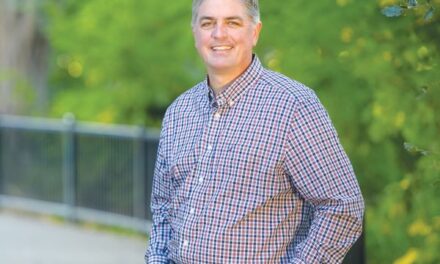Budget Busters
City Council paints itself into corner on deficit
By Jeff Harris
March 2024
The City Council is in a bind. It must pass a balanced budget in June. Revenues are not keeping up with expenses, though our tax rate is the highest in the region. The council faces a $50 million deficit.
At recent hearings, City Manager Howard Chan had department leaders make presentations about staffing, operations, needs and costs. It was eye opening, especially for newer City Council members.
Our roads are degrading. Utilities infrastructure needs replacement. Parks are not maintained. Departments lack resources to provide basic services.

With the deficit looming, Chan asked department leaders to identify cost reductions of 15%. That’s a lot. We already have a backlog of $2 billion in unfunded repairs.
City employees are the biggest cost. Wage and benefit expenses rise every year. Since 2021, the council voted to increase that burden by $80 million annually.
At the same time, the council adopted new social programs and pet projects that broke the budget.
The City Council failed at its most important job—sound fiscal management.
City workers are our most valuable asset. We need quality staff, paid well enough to stay long term. But recent pay raises created a structural deficit that must be addressed.
The city has an Economic Uncertainty Reserve, a rainy-day fund for emergencies. The fund may be tempting to use to close the gap. But using the reserve puts the city at grave financial risk if revenues fall in the future, as they did in the pandemic and Great Recession.
Mayor Darrell Steinberg declared his willingness to use “one-time funds” to balance the budget in 2024. But he told me he didn’t want to tap the reserves. He hinted he may have an undisclosed source of money.
Even if that’s true, it only stalls the pain of making budget cuts until 2025, when the deficit will be higher. Spending emergency reserve money now shifts the burden onto the shoulders of the new mayor and councilmembers being elected this year.
Despite campaign speeches about creating affordable housing, bolstering public safety and spending more on homelessness, the fact remains we have no resources available for reaching these goals, even with substantial tax revenues coming in.
I asked candidates about their awareness of the deficit, what they would be willing to cut, priorities of their constituents, ideas about using emergency reserves to balance the budget, and whether they would be willing to end binding arbitration in negotiations with public safety unions.
Steve Hansen said he wants to preserve core services as a priority, and that public safety was a main concern. Kevin McCarty indicated budget cuts should be a “last option” and we should explore new revenue options.
Flojaune Cofer hopes to use efficiencies spelled out in a report on cost savings generated by Management Partners in 2010. Those savings are achieved largely by contracting work out to private companies and turning Sacramento into a contract city with far fewer employees.
The rest of the candidates did not respond.
Running a campaign is difficult. Most candidates avoid straightforward answers to difficult questions. They prefer to answer in general terms.
As a former candidate and elected public servant, I learned being upfront and detailed was the most effective way to succeed. Constituents liked that approach.
It’s imperative that we elect people knowledgeable and realistic about our city budget, not candidates who vote for programs to increase the deficit and lead to service reductions.
Editor’s Note: Jeff Harris endorsed Steve Hansen for mayor and Phil Pluckebaum for City Council District 4.
Jeff Harris represented District 3 on City Council from 2014 to 2022. He can be reached at cadence@mycci.net. Follow us on Facebook and Instagram: @insidesacramento.















